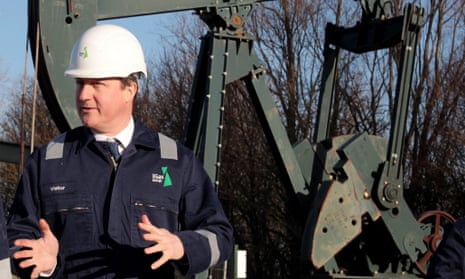Fracking should be banned because of the impact it could have on public health, according to a prominent group of health professionals.
In a letter published by the British Medical Journal on Monday, 20 high-profile doctors, pharmacists and public health academics said the “inherently risky” industry should be prohibited in the UK.
“The arguments against fracking on public health and ecological grounds are overwhelming. There are clear grounds for adopting the precautionary principle and prohibiting fracking,” they said.
The signatories include former chair of the Royal College of General Practitioners, Dr Clare Gerada, chief executive of the Royal Pharmaceutical Society Helen Gordon and former deputy chief medical officer Dr Sheila Adam.
The letter was prompted by a report from health charity Medact, to be released on Monday, which recommended a UK-wide moratorium be placed on fracking. Scotland has already imposed a ban on the industry pending the results of a public health impact assessment. The Department of Energy and Climate Change declined to respond to the letter.
Medact director and report co-author Dr David McCoy said fracking potentially exposes communities to leaks of chemicals linked to cancer, birth defects and lung disease. He also raised concerns over noise and air pollution.
David Cameron has been an enthusiastic supporter of fracking and last year told reporters the industry will be “good for our country”.
“What we don’t yet have is an adequate and proper study to determine the level of those potential benefits and to weigh them against the potential harms,” said McCoy.
The shale gas industry said all fracking sites are subject to an environmental impact assessment before receiving planning consent. CEO of UK Onshore Oil and Gas Ken Cronin said: “Medact’s report fundamentally fails to understand the regulatory system put in place in the UK to cover shale gas exploration.”
He said Medact had ignored the current regulatory framework being put in place across the UK and failed to acknowledge “warnings by recognised experts of the dangers of incorrectly and inappropriately applying experiences from other countries to the UK”.
Cronin said Medact’s findings were contradictory to a 2014 report by Public Health England, which found the risks of public exposure to dangerous chemicals was “low if the operations are properly run and regulated”.
“I am questioning that,” said McCoy. “[Firstly] there is evidence of regulatory capacity being eroded as a result of staff and budget cuts. The second is that it does appear as though there’s been so much pressure to promote fracking that there seems to be a readiness to compromise on safety in order to make fracking commercially viable.”
Last year Cameron announced that the government was going “all out for shale” and would seek to boost the fracking industry. The Department of Energy and Climate Change declined to respond to the letter and report.
Medact’s report said “regulatory gaps and uncertainties” existed that could expose the public to hazards. It noted that in the densely-populated UK, fracking would necessarily take place in and around communities.
McCoy said the conclusions of the report should not stoke alarmism over fracking. Instead he encouraged the government to follow Scotland’s lead in halting the progress of the industry until a full assessment was made of the health risks of fracking.
“We’re not trying to be alarmist and we’re not trying to over-egg the risks. And I certainly know that there’s a lot of anti-fracking groups that really exaggerate the risks of fracking and I don’t think that that’s particularly helpful. But on the other side I think that there’s an exaggeration of the extent to which fracking is safe and can be effectively regulated. What’s really important is that we have to live with this holistically and comprehensively,” said McCoy.
In addition to the health risks of fracking, both McCoy and the signatories of the BMJ letter questioned the place of shale gas in the decarbonisation of the UK energy sector.
The letter said: “Shale gas is not a clean source of energy. Methane is a potent greenhouse gas in its own right, and when burnt, produces carbon dioxide. Shale gas extraction would undermine our commitment to reducing greenhouse gas emissions and be incompatible with global efforts to prevent global warming from exceeding two degrees centigrade.”
McCoy said shale gas could only be considered clean if it hastened the demise of the coal sector by providing an alternative, cheap source of electricity generation. But all parties have committed to phasing out coal power without capture and storage before the end of the 2020s and energy analysts predict the shale gas industry will struggle to build a significant presence in the UK before the early 2020s. He added that this raised questions over the value of the shale gas industry.
